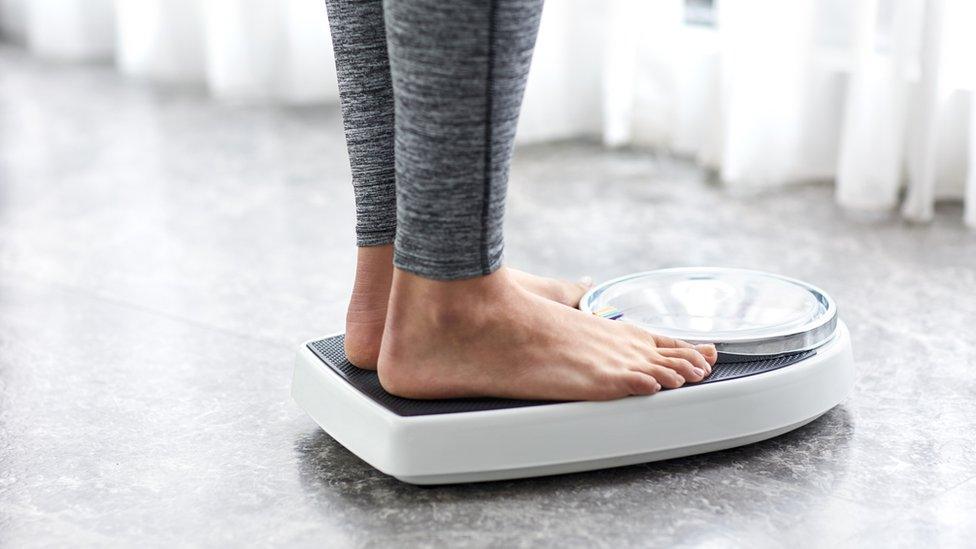Anorexia: Neath woman's fight with 'voice in her head'
- Published
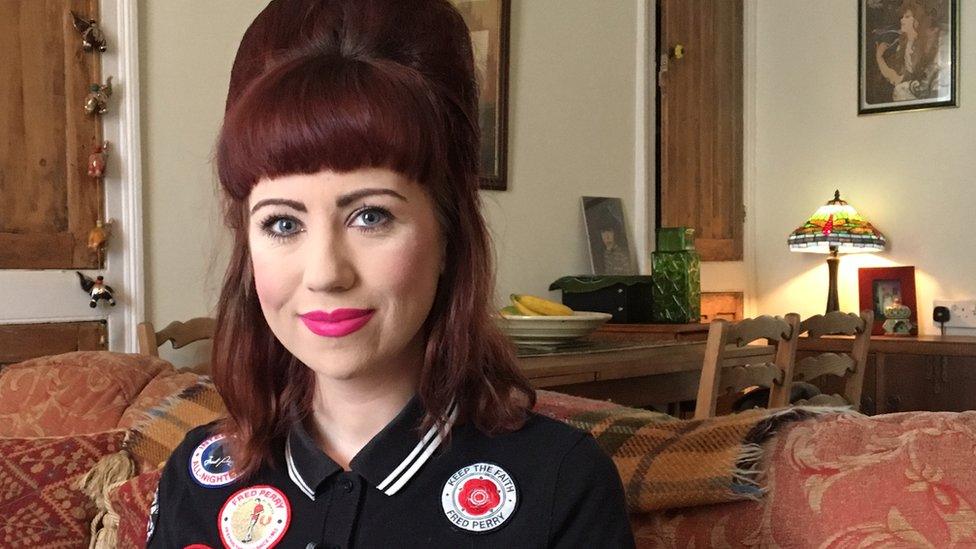
Abi Davies said she named the voice in her head - which drove her anorexia - Laura
Abigail Davies' organs were failing, her hair was falling out and she did not have the strength to bathe herself - and all because of anorexia. The 25-year-old, of Neath, was driven close to death after developing the eating disorder while still in primary school. But what drove her to such extremes? And how did she fight back? She tells her story.
Anorexia presented as a voice inside my head, one that began to distort my mindset from the age of nine.
Initially a companionship, it stole my trust in order to manipulate my thoughts.
When there were aspects of my life that I could not influence and when I found it difficult to deal with my emotions, anorexia allowed me to feel a sense of control over my food intake.
What I did not realise is that I was actually becoming powerless, dominated by an irrational and illogical voice that acquainted itself as a friend and something that wanted what was best for me.
When I first went to see my GP at 13 or 14, I was still able to process some thoughts rationally and was still fighting. However, despite being diagnosed with anorexia, I was told my Body Mass Index (BMI) was not low enough to receive treatment and to return when I was of a lower weight.
As time progressed, anorexia became more and more dominant until my mind became completely overpowered and the voice of Abigail fell silent. I had been engulfed by my eating disorder.
I had been tricked into believing that I wanted anorexia, that I needed to fight everyone else in my life in order to protect it. Anybody who told me that my illness was torturous or detrimental was cut out of my life as anorexia saw them as a threat. It was like being in an abusive relationship with my mind.
I became secluded, had no interest in the things that had previously made me happy, I never smiled, was paranoid that everyone in my life was against me and that I was deserving of anorexia.
My days were spent counting calories, exercising obsessively and obeying all of the demands of my illness.
I needed to make the voice happy and I would stop at nothing to do so.
I was admitted to hospital on more than one occasion but it took rediscovering my love of football to really ignite my recovery. I found that watching sport provided respite from anorexia. I could immerse myself into a match for 90 minutes and not think about food or losing weight.
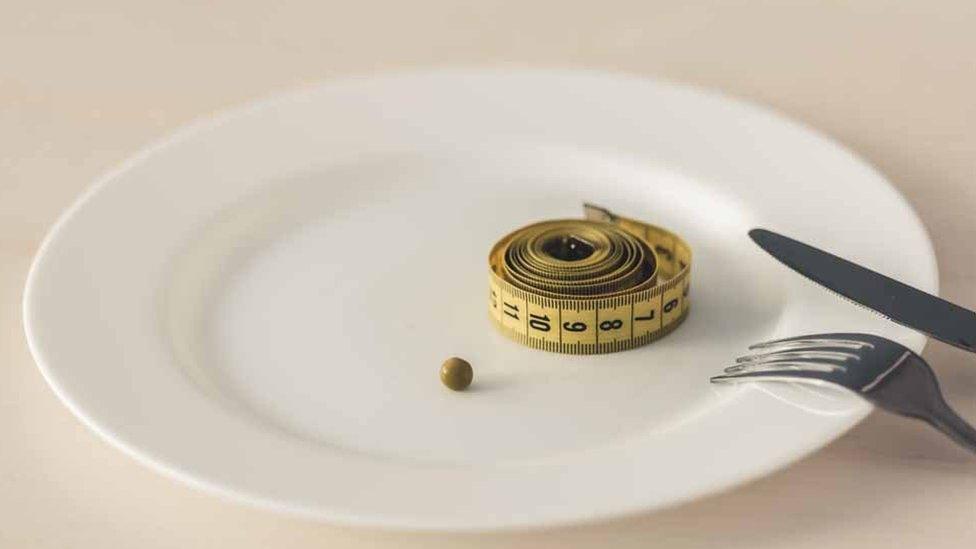
Abigail Davies said her anorexia was coupled with body dysmorphia - which causes a person to have a distorted view of how they look
The more sport I watched and the more I spoke to people about it, the more I realised there was something else in that I could be successful at, something else to focus my attention towards and with a lot of hard work, determination, various therapies and seeing my eating disorder for the odious imposter that it was, I was thankfully able to recover and have recently graduated as a sports journalist.
At my worst, I had given up on life. Mentally consumed and controlled, my eating disorder had worn me down to see myself as undeserving.
Physically, I was at severe risk of suffering a heart attack, my organs were failing, hair was falling out, I was constantly cold and weak and with no energy left to fight, I had no quality of life.
Yet, despite all of the pain, my eating disorder still relentlessly tormented me.
Only in recovery could I see that this mental illness had lied to me, abused me and stripped me of myself.
'Gravely ill'
Anorexia made me believe that without it I would be nothing, that I was worthy of the pain and suffering it bestowed upon me. I now realise I am worth so much more and have healthy ways of dealing with things that are beyond my control.
One thing I learnt whilst in recovery is that this destructive eating disorder would not have been satisfied until I died.
Coupled with body dysmorphia, I never saw the emaciated and withdrawn person I had become and even when gravely ill, my eating disorder continued to reinforce how fat and worthless I was.
Eating disorders are complex illnesses and although they may well be exacerbated by it, they are certainly not a product of narcissism.
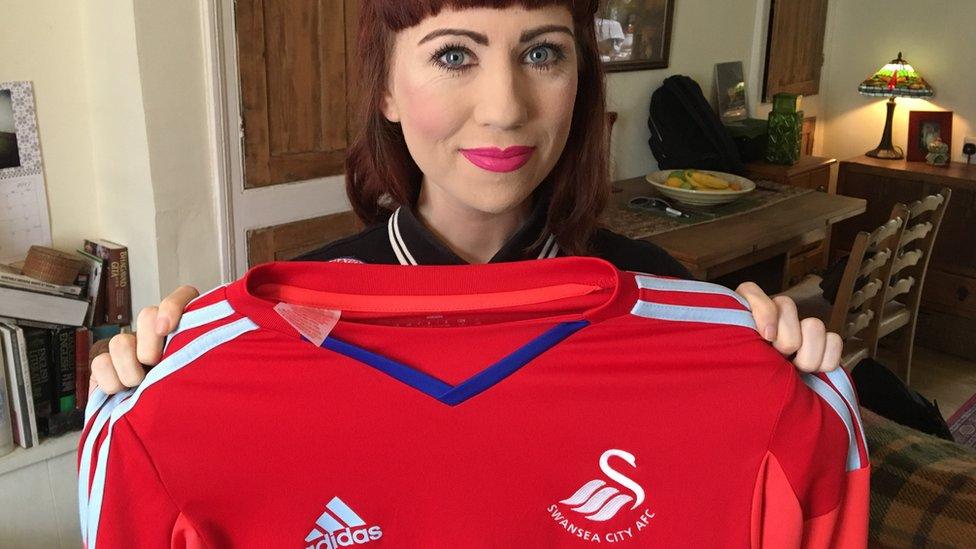
Abigail Davies is a passionate Swansea City fan
It is extremely tough because you have to want to get better and this is often the most difficult hurdle as anorexia convinces you that nothing needs to change.
Reintroducing things that previously brought happiness provided escapism from anorexia and over time, this allowed my personality and thoughts to return and quash those of my illness.
Recovery is a long process and one which you have to fight hard for, but it is the most worthwhile battle you will ever fight.
Anorexia still lives in my head but it will never again have the power and control of my mind.
- Published1 July 2017
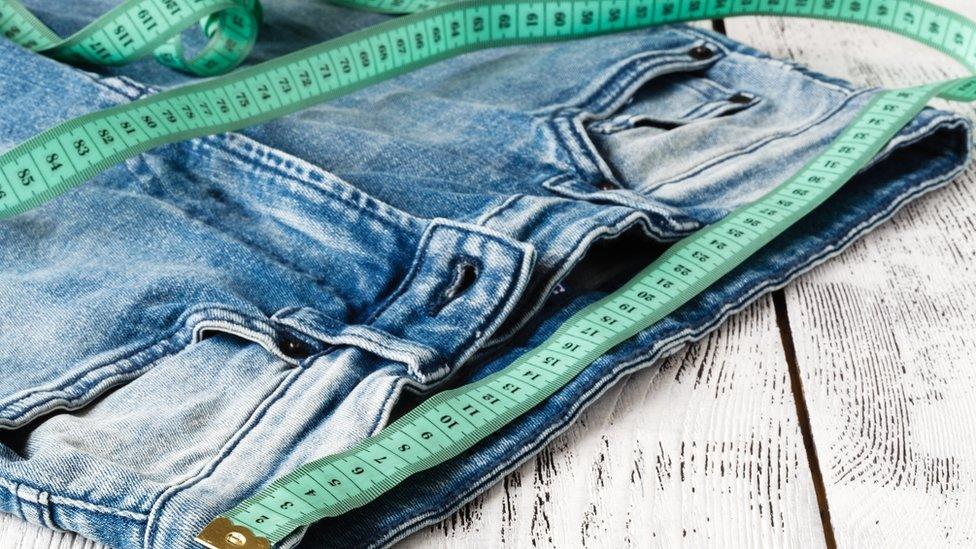
- Published3 July 2014
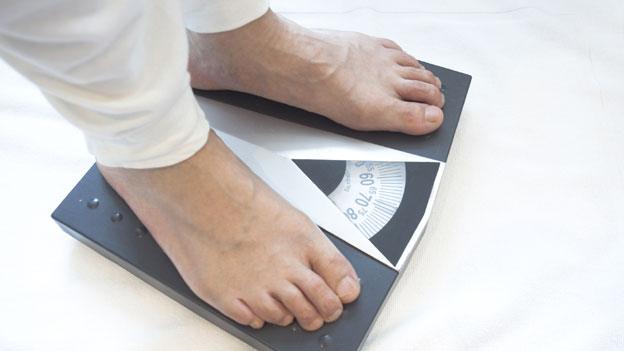
- Published11 May 2017
